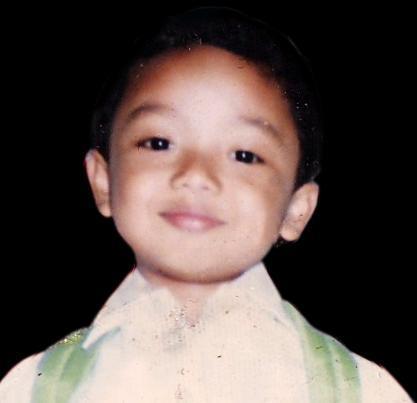The Futility of Studying in School?
a wonderful start-of-the-sem essay by Mr. Leland Dela Cruz himself.
+++++++++++++++++++++++++++++++++++++++++++++++++++
I remember being told a story once about a boy who was ordered by his master to push this huge boulder up a hill. Being obedient, the boy tried to push the boulder but it was too heavy so he barely moved it but the master told him to keep at it. This went on for days and the boy was beginning to feel frustrated but the master kept telling him to try.
After a while, the boy got fed up and finally confronted the master whom he had previously held in high regard and said, "Master, the boulder is too huge and I am too small. Why are you making me push the boulder up the hill when I think you know I cannot?"
And the Master said, "The point is not to push the boulder up the hill but to develop your strength". And true enough, looking at his own reflection, the boy noticed that his body had grown bigger and more capable of doing other things.
I was thinking earlier that the story could be adjusted to be about bringing big rocks (and progressively bigger rocks) up a hill and down again. But the point is that there are some activities which may appear useless now but prepare us for other activities later.
There is a question in the Ateneo College Student Survey which asks if students think if what they learn in school can be applied to the world outside and the interesting observation is the results decrease from batch to batch. The freshmen are more positive and the seniors are least so. Outside formal conversation, I think that students think that a lot of what they learn in the classroom, they cannot apply to their lives (except maybe for psychology and philosophy), present or future.
I think what students are in the position of the boy in the story, engaged in "futile" activities which may not have ends in themselves but which must be considered "exercises". Exercises in thinking, reflecting, solving problems, seeing things from different perspectives, listening. All those have obvious applications after graduation. It is not the content you will remember, but without knowing it, you have been trained, you are being prepared.
I was approached by the Dean of the Law School during a break at our weekend seminar and he said his daughter, who is in third year law, and who was our student in Development Studies, really appreciates the training she received in DS. This is not the first time I have heard that about DS students who go to Law School. The tons of readings inflicted on them and which they were held accountable for and the demands we made in terms of thesis and other projects made Law School readings, although kilometric, manageable.
Our seniors were asking our alumni if thesis helped them get a job and the alumni said no (although I know of a handful of alumni who got their jobs because of thesis) but all the alumni said what they appreciated about thesis was the training.
Studying is also about exercises in trying to find out what teachers want (which I think a skill every good student knows how to do) without their explicitly saying so (most teachers, myself included, cannot articulate "what they're looking for"). When you get to the "outside" world, very few people will be able to tell you what they want explictly and even if they are explicit, a lot of things will be left unsaid (and you end up saying to yourself, "but you said..."). In that sense, studying is good training in reading people and what people are looking for. A really good student can anticipate the test questions of a teacher based on the tone of a lecture.
Of course, it would be so much nicer if studying also involved not just training but also retaining content. That is the challenge for teachers, to teach content that speaks of life and not imaginary worlds. To speak of content that have a reasonable chance of being used after college. To remember that we are not training most students to be professors steeped in theory but practitioners.
It would also be so much nicer if the boulders being pushed up the hill or rocks being carried up (ex. projects, theses, papers) were actually being used for something by someone. Again, that is a challenge for teachers to create opportunities for this "useful" product to be possible. And we have been experimenting in some departments along these lines, what we call service-learning.
Those are "nice to haves" and teachers must move in the direction of making these "must haves". But even without these, there is some consolation that students can draw from pushing up immovable boulders or engaging in "futile" activities. Hopefully, all of these activities will make them more capable of facing various challenges after graduation.


0 Comments:
Post a Comment
<< Home